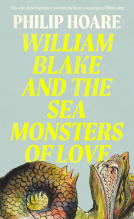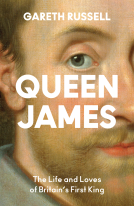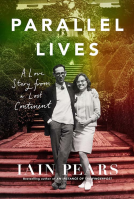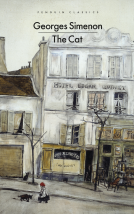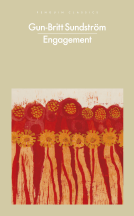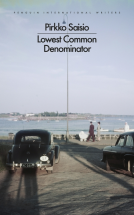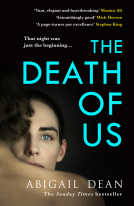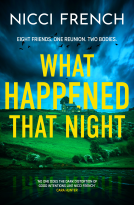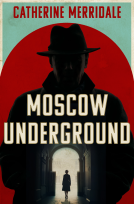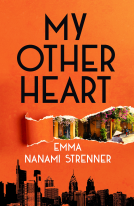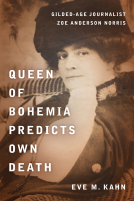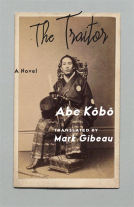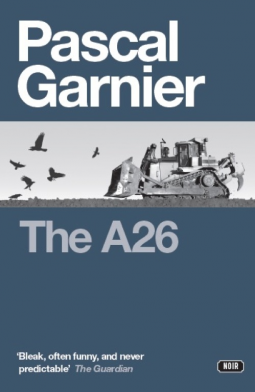
The A26
by Pascal Garnier
This title was previously available on NetGalley and is now archived.
Send NetGalley books directly to your Kindle or Kindle app
1
To read on a Kindle or Kindle app, please add kindle@netgalley.com as an approved email address to receive files in your Amazon account. Click here for step-by-step instructions.
2
Also find your Kindle email address within your Amazon account, and enter it here.
Pub Date 11 Feb 2013 | Archive Date 28 Oct 2015
Description
Advance Praise
This is tough, bloody stuff, but put together with a cunning intelligence. --The Sunday Times
For those with a taste for Georges Simenon or Patricia Highsmith, Garnier's recently translated oeuvre will strike a chord -- --The Independent
Available Editions
| EDITION | Paperback |
| ISBN | 9781908313164 |
| PRICE | £6.99 (GBP) |
Average rating from 17 members
Featured Reviews
 Educator 211653
Educator 211653
Thank you Net Galley. A disturbing and fascinating piece of fiction. Short enough to read on the commute but I recommend you do not do that. Better to read it at night, in one's own home and savor the book, which is very dark but is not unrelieved by touches of humor. An unforgettable author.
 Douglas O, Reviewer
Douglas O, Reviewer
I had no idea what I was about to read but found this to be another from this publisher that I could not put down. A superb original story by Garnier, it has been very well translated. The characters may be odd but they are credible. The script flows smoothly and the ending is unpredictable. There is a wealth if story in a relatively short book.
 Media/Journalist 207345
Media/Journalist 207345
This is the first book by Pascal Garnier that I have read, but it certainly won’t be the last. I’m relatively new to French crime fiction, the only other works I’ve read having been the excellent Bed of Nails by Antonin Varenne and the equally compelling Carnage by Maxime Chattam, the latter of which I review here: http://thecrimenovelreader.blogspot.co.uk/2015/10/carnage-by-maxime-chattam.html.
What these three books share is a kind of quirkiness that I’m starting to associate with Francophone fiction, a surrealism that is quite unlike anything I’ve encountered elsewhere. In Pascal Garnier’s A26 this revolves around the lives of Yolande and her brother Bernard, a distinctly odd set of siblings who live together. Yolande is a hermit, she never ventures from the confines of their shabby and cluttered abode, who relies on her brother for her every need. Bernard on the other hand has just been diagnosed with a terminal disease (details are scarce, but I suspect it’s cancer), feels his life has been wasted, and starts to get some very dark urges as a result. The A26 of the title is a new motorway being built, a none-too-subtle manifestation of the modern world threatening to encroach on their lives.
This book tries to tackle a number of themes in its slim 112 pages, not least issues France has never really resolved from the Second World War. First and foremost it tackles the issue of those who collaborated with the Germans, those who persecuted them after the war and the hypocrisy of many who slung mud. Related issues the book raises are repentance, compassion and ostracism; the treatment of the mentally ill and those we deem outsiders; the onward march of progress. Some of these themes are deftly handled, particularly the residue of France’s shaming of those it deemed to have collaborated, the humiliations foisted upon young women who had relationships with German soldiers, a stigma which lasted long after the visible tarring and feathering. With other issues the author is clumsier, the building of the A26 motorway as a personification of progress I found a particularly clunky plot device.
That all said, this is a short and compelling read. It’s a great example of French crime fiction at it’s best, a region and tradition which I consider richer than the Scandi-Crime that routinely tops the UK’s bestseller lists. If you want to read something different than endlessly frozen landscapes, this book is as good a place to start.
 Deborah C, Reviewer
Deborah C, Reviewer
I'm very grateful to Gallic Books for introducing me to the works of Pascal Garnier. The A26 is my second Garnier book, following The Panda Theory, and as was the case in The Panda Theory, the lives of the main characters in The A26, Yolande and Bernard, are dark and haunted by the past.
The publisher's description of this book led me to expect Bernard to be the driving force of the story, yet it is actually Yolande who serves as its brooding center. She is a paranoid agoraphobe who has never recovered from her experiences in World War II; like many young women in Nazi-occupied France, Yolande survived by becoming the mistress of a German officer, only to have her fellow villagers turn on her after France's liberation, shaving her head in retribution for her collaboration horizontale (for a good brief discussion of this practice, see this article from The Guardian: http://www.theguardian.com/lifeandstyle/2009/jun/05/women-victims-d-day-landings-second-world-war). Those experiences circumscribe, and ultimately define, the siblings' lives for decades, until Bernard's terminal illness irrevocably alters their relationship, both with each other and with the outside world.
The A26 was translated by Melanie Florence, and I found her use of British slang (e.g., bugger off, pinny, biro) jarring in a book set in France. I don't recall having the same problem while reading The Panda Theory, which was translated by Svein Clouston. Next up on my Garnier TBR pile is Boxes, also translated by Florence, so I will soon see whether this continues to be an issue.
I received a free copy of The A26 through NetGalley in exchange for an honest review.
 Mandy J, Reviewer
Mandy J, Reviewer
Pascal Garnier’s short, spare novel packs a powerful punch. It’s grim, bleak and pretty horrific in places. It’s also quite hypnotic and immensely readable. It features a dysfunctional pair of siblings, Yolande and Bernard, living in a small French town. Yolande, we discover, has been traumatised by what happened to her during WWII and hasn’t left the house since 1945. Bernard has held down a job but a terminal illness now threatens this and sends him on a murderous spree. Atmospheric and moving in spite of its gruesomeness, this is a haunting and deeply uncomfortable read, but a very enjoyable one nonetheless.
Readers who liked this book also liked:
Philip Hoare
Arts & Photography, Biographies & Memoirs, Nonfiction (Adult)
Pirkko Saisio
Biographies & Memoirs, General Fiction (Adult), Literary Fiction
Catherine Merridale
General Fiction (Adult), Historical Fiction, Mystery & Thrillers
